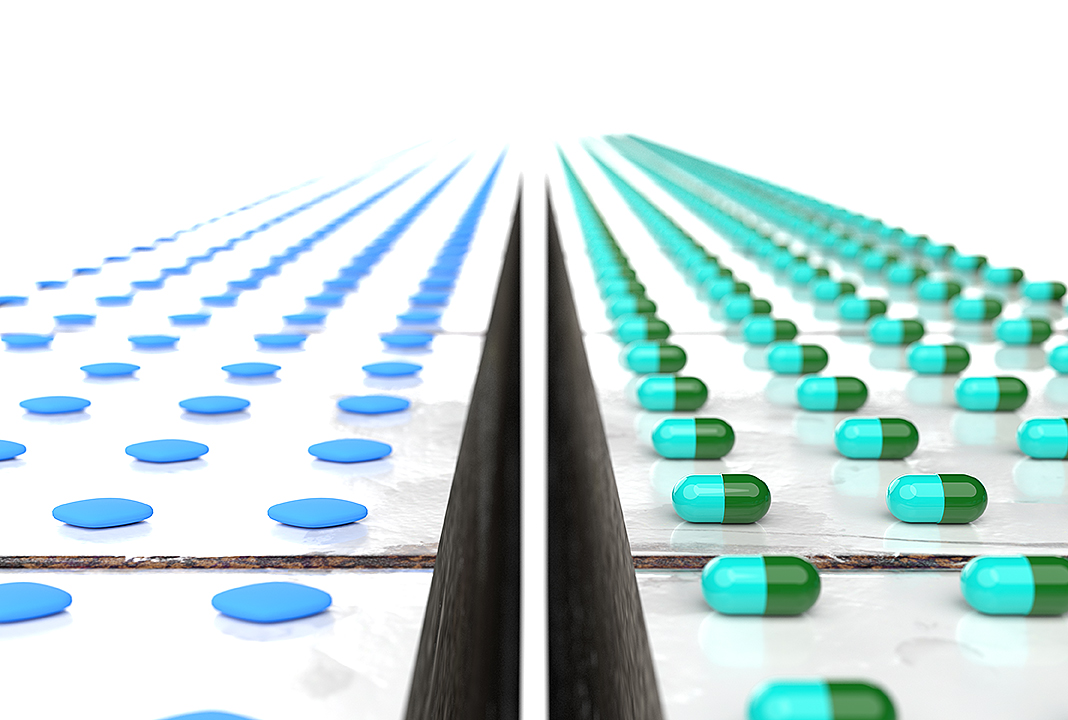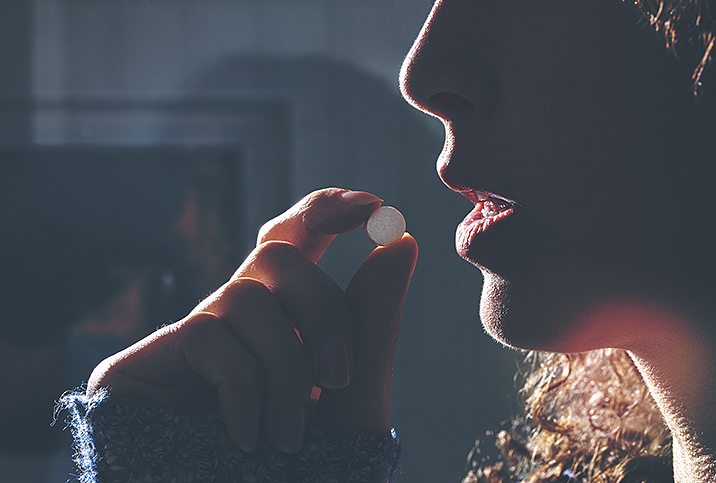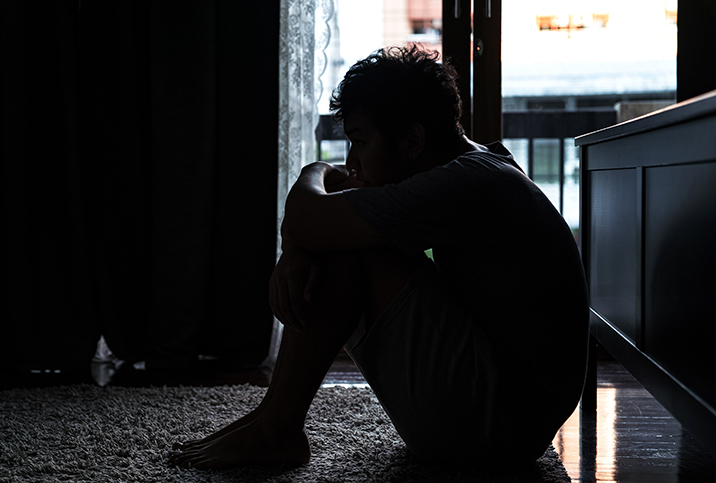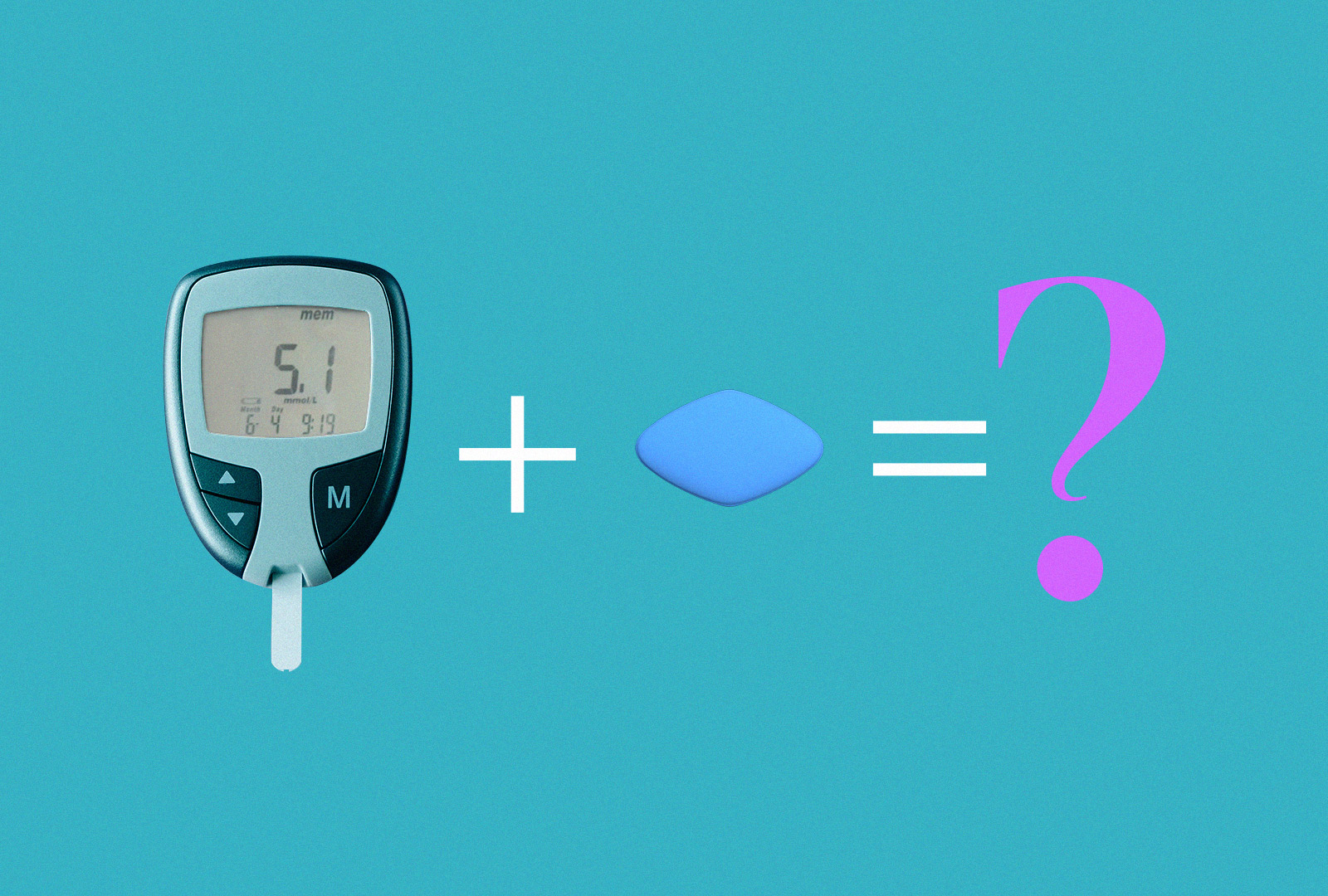Do Antidepressants Interfere With Your Sex Life?

If you're being treated for depression, it might well have a lot to do with why you're either uninterested in sex or having issues with sex. And the answer to "fix" either concern doesn't necessarily come in the form of a script.
Dr. Petar Bajic, a urologist at the Cleveland Clinic, said that when a patient comes to him worried about performance in the bedroom and is taking antidepressants, he knows that he has to treat the whole patient. "This isn't simply about sex alone," Bajic said.
So instead of simply defaulting to prescription erectile dysfunction (ED) meds, Bajic said he first talks to the patient about sex therapy, which he believes more physicians should seek as a solution early on.
"I want men to have someone to trust about their experiences," Bajic explained, "both with sexual anxiety but also their depression in general." And patients' partners should get in on the discussion, too, so "both sides are comfortable with whatever the challenges are."
The effect of SSRI antidepressants on sex
You may still need antidepressants, for any variety of reasons. The most common class of antidepressants is known as selective serotonin reuptake inhibitors, or SSRIs. Brand names include Zoloft and Prozac. They're not the only drugs prescribed, but they're used because of relatively low side effects and tremendous efficacy. However, SSRIs can certainly mess with your sex life, which is a bit of a Catch-22 given that depression typically leads to lower libido, Bajic said.
Dr. Arthur Burnett, professor of urology at Johns Hopkins School of Medicine in Baltimore, said the main issue with SSRIs is that they can cause a failure to achieve orgasm—and you might not actually feel an orgasm even if you have one. That's because, "the neurotransmitter pathway these medications target are more likely involved in the ejaculatory reflex," he explained.
In other words, your brain's general background level of pleasure chemistry (thank you, serotonin) is already elevated by the SSRI, making the introduction of the signal from an orgasm difficult to register. But, since "not everyone responds to SSRIs the same way," Burnett said it's important to talk to your physician and/or your psychiatrist about possible alternatives.
Unfortunately, Burnett added that while the SSRI helps stave off your depression, another possible side effect is that it can also make you less interested in sex. In that case, go back to your healthcare providers and consider a different medication.
Can I mix ED meds and SSRIs?
Even if you're still interested in sex, SSRIs can interfere with your ability to maintain an erection. Dr. Toby Kohler, professor of urology and director of Men's Health at the Mayo Clinic in Minnesota, said one reason might be that SSRIs can decrease testosterone production. One common regimen to right this issue, he advised, can be to combine ED meds, SSRIs and testosterone therapy.
There's little indication that common ED medications and SSRIs introduce any harmful side effects when mixed, so there's no danger of combining the medications.
Even better: Kohler noted that because SSRIs can delay (but not eliminate) ejaculation in some patients, the drugs are sometimes used to treat patients who suffer from premature ejaculation. "Suddenly, the unwanted side effect of SSRIs, of delaying orgasm, is wanted," he said.
The upshot is that SSRIs and ED meds (and, obviously, other medications and therapies) interact differently depending on your own chemical makeup. If you're not getting the desired effect, talk to your doctors. There's rarely just one combination of meds that will work, but you need to advocate for yourself, and that means working with your healthcare providers to get to that happier place.


















